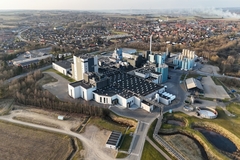
- Industry news
Industry news
- Category news
Category news
- Reports
- Key trends
- Multimedia
Multimedia
- Journal
- Events
- Suppliers
- Home
- Industry news
Industry news
- Category news
Category news
- Reports
- Key trends
- Multimedia
Multimedia
- Events
- Suppliers
Thammasat University team develops business plan for a non-caloric sweetener

Using a combination of local raw materials and modern technology, the team will launch Pure Lite, a sweetener made from a newly developed variety of stevia or sweetgrass.

22/02/05 Would-be entrepreneurs from Thammasat University are hoping for a sweet taste of success when their school hosts the Asia Moot Corp 2005 competition from March 15-17.
The Thammasat team has developed a business plan for a non-caloric sweetener, after pondering its options for two months before settling on an agriculture-based product in which Thailand has a strong competitive advantage.
Using a combination of local raw materials and modern technology, the team will launch Pure Lite, a sweetener made from a newly developed variety of stevia or sweetgrass.
Wanwipa Teerasopon, a team member who is studying for a master's degree in marketing, said stevia used to grow in northern Thailand but almost disappeared due to a lengthy ban on local consumption by the Public Health Ministry.
The ministry announced in 2002 that stevioside _ an extract from stevia _ could be used as a food ingredient but manufacturers had to create labels stating that the products could be consumed by adults and people with special dietary needs.
The team believes its production technology will extract the purest part of stevia to make the new product about 300 times sweeter than sugar, but with zero calories.
Ms Wanwipa said the product would also have no bitterness and would remain stable at temperatures up to 200 degrees Celsius, so finished products could also be made using pasteurisation.
The team has already established a laboratory-scale pilot factory in Chiang Rai. If the business receives full funding, the factory would have a capacity to produce 10 tonnes of sweetener a year and 70 tonnes in five years.
The factory would buy dried leaves at 100 baht a kilogramme. Ten kilogrammes of fresh leaves produce one kilogramme of dried leaves, which can produce 100 grammes of Pure Lite.










